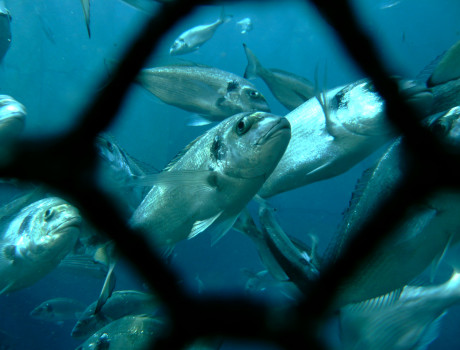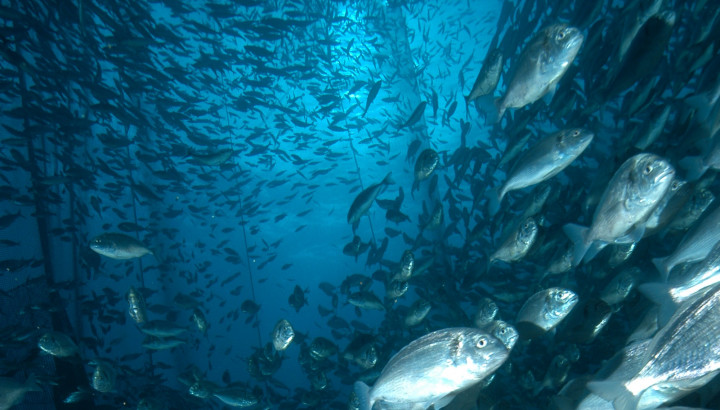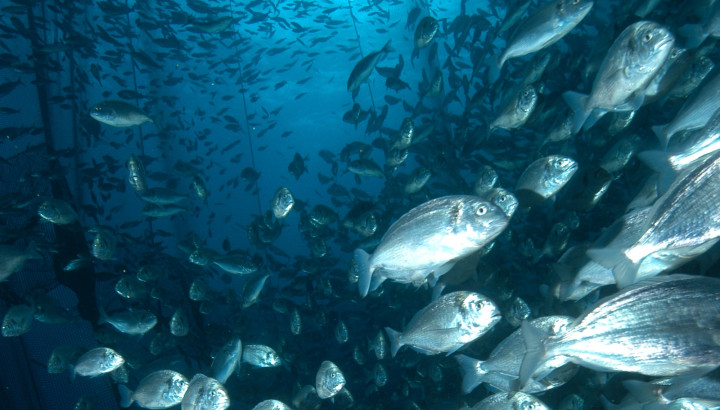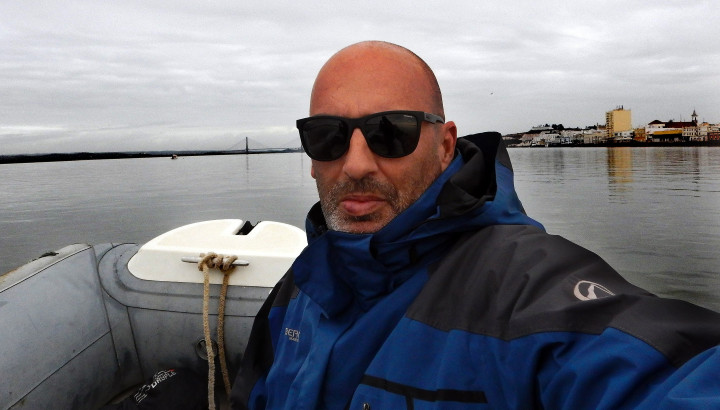|
Saraiva JL, Volstorf J, Cabrera-Álvarez MJ, Arechavala-Lopez P. Using Ethology To Improve Farmed Fish Welfare And Production. Brussels: Aquaculture Advisory Council; 2022. https://aac-europe.org/images/AAC_ethology_and_welfare_final.pdf. |
|
Saraiva JL, Arechavala-Lopez P, Sneddon L. Finding the "golden stocking density": a balance between fish welfare and farmers' perspectives. Frontiers in Veterinary Science. 2022. doi:10.3389/fvets.2022.930221 |
|
Arechavala-Lopez P, Nuñez-Velazquez S, Diaz-Gil C, Follana-Berná G, Saraiva JL. Suspended Structures Reduce Variability of Group Risk-Taking Responses of Dicentrarchus labrax Juvenile Reared in Tanks. Fishes. 2022;7(3):126. doi:10.3390/fishes7030126 |
|
Saraiva JL, Arechavala-Lopez P, Cabrera-Alvarez M, Waley D. Particular Welfare Needs In Animal Transport: Aquatic Animals. Brussels: European Parliament; 2021. https://www.europarl.europa.eu/thinktank/en/document.html?reference=IPOL_STU(2021)690875. |
|
Palstra AP, Arechavala-Lopez P, Xue Y, Roque A. Accelerometry of Seabream in a Sea-Cage: Is Acceleration a Good Proxy for Activity?. Frontiers in Marine Science. 2021;8. doi:10.3389/fmars.2021.639608 |
|
Rios-Fuster B, Arechavala-Lopez P, García-Marcos K, et al. Experimental evidence of physiological and behavioral effects of microplastic ingestion in Sparus aurata. Aquatic Toxicology. 2021;231:105737. doi:10.1016/j.aquatox.2020.105737 |
|
Arechavala-Lopez P, Pérez-Mayol S, Palmer M, Valero-Rodriguez JM, Sanchez-Jerez P, Morales-Nin B. Tracing of aquaculture-escaped meagre Argyrosomus regius through otolith microchemistry. Journal of Sea Research. 2021;169:102007. doi:10.1016/j.seares.2021.102007 |
|
Follana-Berná G, Palmer M, Campos-Candela A, et al. Consequences of trait-selective fisheries on population reproductive potential: An experimental approach. Fisheries Research. 2021;239:105939. doi:10.1016/j.fishres.2021.105939 |
|
Arechavala-López PA, Nazzaro-Alvarez J, Jardí-Pons A, et al. Linking stocking densities and feeding strategies with social and individual stress responses on gilthead seabream (Sparus aurata). Physiology & Behavior. 2020;213. doi:10.1016/j.physbeh.2019.112723 |
|
Baduy F, Saraiva JL, Ribeiro F, Canario AVM, Guerreiro PM. Distribution and Risk Assessment of Potential Invasiveness of Australoheros facetus (Jenyns, 1842) in Portugal. Fishes. 2020;5(1). doi:10.3390/fishes5010003 |
|
Candela MGimenez, Saraiva JL, Bauer H. The legal protection of farmed fish in Europe – analysing the range of EU legislation and the impact of international animal welfare standards for the fishes in European aquaculture. dA. Derecho Animal (Forum of Animal Law Studies). 2020;11(1). doi:10.5565/rev/da.460 |
|
Follana-Berná G, Palmer M, Lekanda-Guarrotxena A, Grau A, Arechavala-Lopez P. Fish density estimation using unbaited cameras: Accounting for environmental-dependent detectability. Journal of Experimental Marine Biology and Ecology. 2020;527. doi:10.1016/j.jembe.2020.151376 |
|
Muñoz L, Aspillaga E, Palmer M, Saraiva JL, Arechavala-Lopez P. Acoustic telemetry: a tool to monitor fish swimming behaviour in sea-cage aquaculture. Frontiers in Marine Science. 2020. doi:10.3389/fmars.2020.00645 |
|
Diaz-Gil C, Alós J, Arechavala-Lopez P, et al. Reversible morphological changes in a juvenile marine fish after exposure to predatory alarm cues. Royal Society Open Science. 2020;7(5):191945. doi:10.1098/rsos.191945 |
|
Arechavala-Lopez P, Caballero-Froilán JC, Jiménez-García M, et al. Enriched environments enhance cognition, exploratory behaviour and brain physiological functions of Sparus aurata. Scientific Reports. 2020;10(1). doi:10.1038/s41598-020-68306-6 |
|
Saraiva JL. Fish Lives Matter! Science-based evidence and directions for humane fish farming. 2019. |
|
Saraiva JL, Arechavala-Lopez P. Welfare of Fish—No Longer the Elephant in the Room. Fishes. 2019;4:39–0. doi:10.3390/fishes4030039 |
|
Arechavala-López PA, Saraiva JL. Welfare Of Cultured And Experimental Fishes. Basel, Switzerland: MDPI; 2019. doi:10.3390/books978-3-03921-711-3 |
|
Höglund E, Moltesen M, Castanheira MF, et al. Contrasting neurochemical and behavioural profiles reflects stress coping styles but not stress responsiveness in farmed gilthead seabream (Sparus aurata). Physiology and Behavior. 2019. doi:https://doi.org/10.1016/j.physbeh.2019.112759 |
|
Oliveira C, McStay E, Cabrita E, et al. Investigating the kisspeptin system in the hermaphrodite teleost gilthead seabream (Sparus aurata). Comparative biochemistry and physiology. Part A, Molecular & integrative physiology. 2019. doi:10.1016/j.cbpa.2019.110624 |
|
CASTRO-FERNÁNDEZ JULIA, CASTEJÓN-SILVO INÉS, Arechavala-Lopez P, TERRADOS JORGE, Morales-Nin B. Feeding ecology of pipefish species inhabiting Mediterranean seagrasses. Mediterranean Marine Science. 2019. doi:10.12681/mms.22455 |
|
Saraiva JL, Arechavala-López PA, Castanheira MF, Volstorf J, Studer BHeinzpeter. A Global Assessment of Welfare in Farmed Fishes: The Fishethobase. Fishes. 2019. doi:10.3390/fishes4020030 |
|
Arechavala-López PA, Diaz-Gil C, Saraiva JL, et al. Effects of structural environmental enrichment on welfare of juvenile seabream (Sparus aurata). Aquaculture Reports. 2019;15. doi:10.1016/j.aqrep.2019.100224 |
|
Saraiva JL, Castanheira MF, Arechavala-López PA, Bray P, Studer BHeinzpeter. The CAREFISH project: establishing scientific welfare standards in fish farming certification. 2018. |







